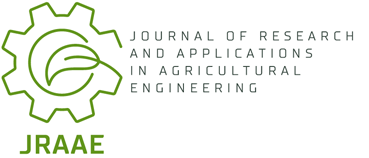Current issue
Online First
Archive
Instructions for Authors
Guide for Authors
Peer Review Policy
Research Ethics Policy
Ghostwriting and Guest Authorship
Copyright
Open Access Policy
Plagiarism
About the Journal
Aim and Scope
Scientific Board
Publisher
Editorial Board
Indexing in Databases
Personal Data Protection
Repository Policy
Contact
ORIGINAL PAPER
Knowledge of organic production and Fair Trade rules among coffee consumers in Poland
Journal of Research and Applications in Agricultural Engineering 2008;53(4):108-115
KEYWORDS
ABSTRACT
The paper illustrates the problems connected with the production and consumption of coffee, with a particular emphasis on organic coffee production. Important differences are indicated between the production methods of organic coffee and of intensive cultivations. Attention is paid to the new rules governing the international coffee market, including the Fair Trade rules covering coffee production and trade. Organizations promoting organic production and Fair Trade rules in coffee trade are described. The experimental part comprises research results from a study in the Tri-City area dedicated to the knowledge of Fair Trade rules and organic coffee production.
REFERENCES (33)
1.
Ponte S.: The "latte revolution"? Regulation, markets and consumption in the global coffee chain. World Development, 2002, 30 (7), 1099-1122.
2.
Kolk A.; Corporate Social Responsibility in the Coffee Sector: The Dynamics of MNC Responses and Coffee Development; European Management Journal, 2005, 23, 2, 228-236.
4.
Śmiechowska M., Dmowski P.: Behavior of polish consumer on the coffee and tea market; The XVth Symposium of IGWT "Global Safety of Commodity and Environment Quality of Life", Kyiv, Ukraine, 12-17.09.2006, Proceedings, II, 1371-1375.
5.
Bomertówna B.: O kawie i herbacie prawie wszystko. Wydawnictwo Pagina, Warszawa 1998.
9.
Stagen G.H.D.; Enhancement of coffee quality by mould prevention; Food Control, 2003, 14, 245-249.
10.
Coltro L., Mourad A.L., Oliveira P.A.P.L.V., Baddini J.P.O.A., Kletecke R.M.; Environmental Profile of Brazilian Green Coffee; Int J LCA, 2006, 11 (1), 16-21.
11.
Durevall D.; Demand for coffee in Sweden: The role of prices, preferences and market power; Food Policy, 2007, 32, 566-584.
12.
Śmiechowska M., Dmowski P., Pigłowska M.; Determinanty wyboru kawy i herbaty przez polską i hiszpańską młodzież akademicką; "Zarządzanie produktem - wyzwania przyszłości" - monografia pod red. J. Kalla i B. Sojkina, Wydawnictwo Akademii Ekonomicznej w Poznaniu, Poznań 2006, 323-330.
13.
Zawadzka - Ben Dor R.: Plantacje w cieniu drzew. Przegląd Piekarski i Cukierniczy, 2007, 1, 70-71.
14.
International Coffee Organisation. Organic coffee export statistic. Volume and value. Calendar years 2005 and 2006.
15.
Coe C.: Farmer Participation in Market Authorities of Coffee Exporting Countries; World Development, 2006, 34, 12, 2089-2115.
16.
Mehta A., Chavas J-P.: Responding to the coffee crisis: What can we learn from price dynamics?, Journal of Development Economics, 2008, 85, 282-311.
17.
Śmiechowska M., Dmowski P.: Rozwój sieci kawiarni w Polsce na tle tendencji światowych. Handel Wewnętrzny. Marketing. Rynek. Przedsiębiorstwo, Nr specjalny czerwiec 2006, 449-455.
18.
Taylor P.L.: In the Market But Not of It: Fair Trade Coffee and Forest Stewardship Council Certification as Market-Based Social Change, World Development, 2005, 33, 1, 129-147.
19.
Giovannucci D., Ponte S.: Standards as a new form of social contract? Sustinability inititives in the coffee industry; Food Policy, 2005, 30, 284-301l.
21.
James D.: Justice and java: coffee in a Fair Trade market. NACLA Report on the Americas, 2000, 34(2) 11-14.
22.
Robinson D.: The actual and potential impacts of forest certification and Fair Trade on poverty and injustice; the case of Mexico. New York: The Ford Foundation, Community and Resource Development Unit, 2000.
23.
Fitter R., Kaplinsky R.: Who gains from product rents as the coffee market becomes more differentiated? A value chain analysis. IDS Bulletin Paper, 2001.
24.
O'Brien C.: Report on Fair Trade trends in the US, Canada. Washington, DC: Fair Trade Federation, 2002.
25.
Murray D., Raynolds L. T., Taylor P.: One cup at a time: poverty alleviation and Fair Trade coffee in Latin America. New York: The Ford Foundation, 2003.
28.
Loureiro M.L., Lotade J.: Do fair trade and eco-labels in coffee wake up the consumer conscience?; Ecological Economics, 2005, 53, 129-138.
29.
Renard M. C. (1999): The interstices of globalization: the example of fair coffee. Sociologia Ruralis, 1999, 39 (4), 484.
30.
Perfecto I., Vandermeer J., Mas A., Pinto L.S.: Biodiversity, yield, and shade coffee certification; Ecological Economics, 2005, 54, 435-446.
31.
Soto-Pinto L., Perfecto I., Castillo-Hernandez., Caballero-Nieto J.: Shade effect on coffee production at the northern Tzeltal zone of the state of Chiapas, Mexico, 2000, 80, 61-69.
Share
RELATED ARTICLE
We process personal data collected when visiting the website. The function of obtaining information about users and their behavior is carried out by voluntarily entered information in forms and saving cookies in end devices. Data, including cookies, are used to provide services, improve the user experience and to analyze the traffic in accordance with the Privacy policy. Data are also collected and processed by Google Analytics tool (more).
You can change cookies settings in your browser. Restricted use of cookies in the browser configuration may affect some functionalities of the website.
You can change cookies settings in your browser. Restricted use of cookies in the browser configuration may affect some functionalities of the website.


